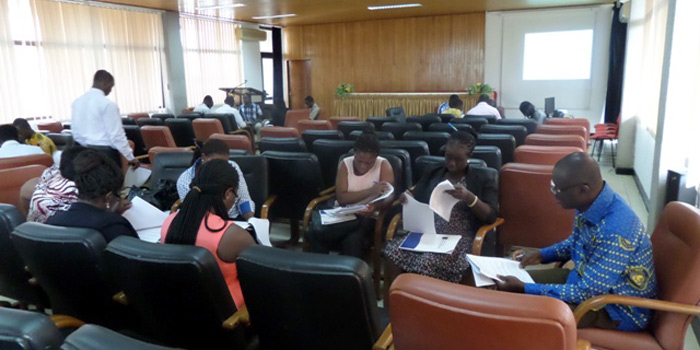KNUST is the acronym for the Kwame Nkrumah University of Science and Technology, which is based in Kumasi, the second-largest city in Ghana. The city is home to almost 1.5 million people and a university with 40,000 students. The university itself is developing at an almost explosive pace, but has hardly any contact with industry in Ghana.
This is where Andres Permin, Senior Executive Officer at the Office for Innovation and Sector Services, comes into the picture. Together with his colleagues Christine Rich and Balder Onarheim from DTU Management, Anders travels around Africa promoting innovation. This work is part of the project entitled ‘Building Stronger Universities’, which is funded by DANIDA and involves Danish universities and a variety of higher education institutions in developing countries.
Anders Permin relates that things are going well in Ghana. The country has improved its status from ‘developing country’ to ‘emerging country’, generating annual growth of 9–10 per cent. This rate is higher than China’s, and the rapid growth has helped the creation of a giant middle class in the country.
But this is precisely where the problem arises, because the rapidly developing industry with the impressive growth rate has almost no contact whatsoever with the universities, which otherwise possess a huge pool of resources. As Anders Permin explains, it is largely a matter of tradition, because the African universities tend to take a highly conventional approach to research.
“Research has long been powered by funding from the western world, so it hasn’t always been overly relevant to the local community. This is all changing now, with a growing realization that research should also benefit the home country itself, and this is where we are to help.”
It is not all that long ago that there was almost no working relationship whatsoever between industry and the universities in Denmark, but as Anders Permin explains, DTU in particular has built up a pool of good experience that other players can now exploit:
“DTU is at the cutting edge, working closely with industry in many areas. For example, we sign around 1,000 new contracts with industrial partners every year, which is in line with the level of activity at the other Danish universities. As such, we are highly active in this area.”

Problem-Based Learning
Problem-Based Learning is the name of a method designed to base teaching on actual problems rather than theoretical textbooks. The method is generally unfamiliar to educational institutions in Africa, and is therefore accorded top priority when Anders Permin and his colleagues visit Ghana.
“This is something we teach actively and provide tools to encourage. We also use it in our work with industry and the university; we invite industrial players to lay out their problems, which provides the basis for starting a dialogue.”
A series of workshops at KNUST have given the university the opportunity to work on a number of projects such as helping bee-keepers to combat diseases, the food industry to optimize ingredients, and manufacturers to develop cookers that can run on firewood—because a great many people still cook over an open fire, even in the cities—and remain sustainable.
“It may seem obvious—travelling down there and encouraging two parties to talk to each other—but it’s essential not to underestimate the complexity of the process,” says Anders Permin. Because innovation cannot simply be transferred from one country to another.
“In order to support KNUST’s long-term, integrated work with innovation, the partnership must also feature dialogue about how innovation, as both a method and a goal, can be assimilated into curricula. It’s simple for us, but the African educational institutions still have some obstacles to overcome in this context because it requires them to think and work in a completely different way,” he concludes.